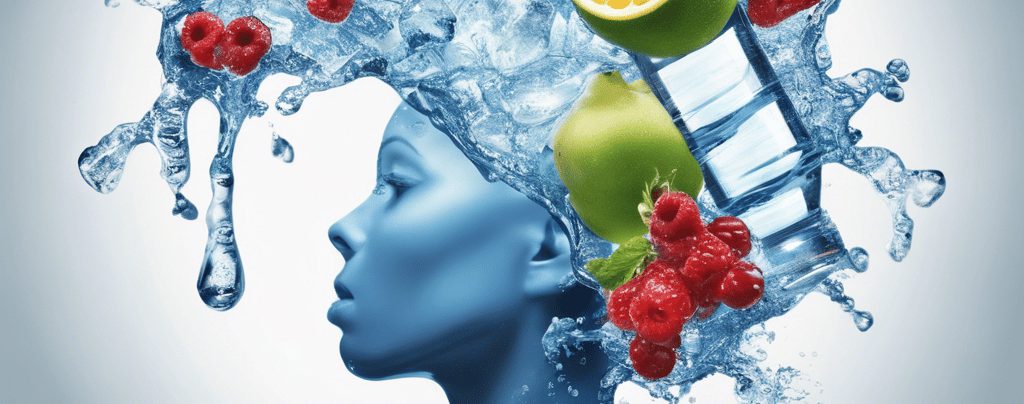Water Consumption Metrics: How Much to Drink per Body Weight
This article explores the ideal water intake for individuals based on their body weight, activity level, age, and environmental conditions. Discover the importance of proper hydration, the benefits of drinking enough water, and how dehydration can negatively affect your health.
WB- HEALTHY HABITS AND THEIR BENEFITS
A. FRANCISCO PINTO
12/1/20244 min read


Water Consumption Metrics: How Much to Drink per Body Weight
The ideal amount of water a person should drink varies depending on several factors, including body weight, physical activity level, age, and climate conditions. Generally, guidelines suggest that water consumption should be around 30 to 35 milliliters per kilogram of body weight. For example, a person weighing 70 kilograms (about 154 pounds) may need between 2,100 to 2,450 milliliters (or approximately 2.1 to 2.45 liters) of water daily. This relationship allows every individual to adjust their intake based on their personal needs.
Factors such as exercise intensity and climate play a crucial role in hydration. During vigorous physical activities, especially in hot environments, hydration needs can significantly increase. It is recommended that those participating in sports or intense activities drink water before, during, and after exercise to replenish fluids lost through sweat. In extreme heat conditions, water intake may need to be even higher, with some experts advising up to 50 milliliters (approximately 1.7 ounces) per kilogram of body weight.
In addition to variations related to exercise and climate, age also influences water needs. Children and adolescents, in growth phases and with high activity levels, generally require larger amounts of water. Conversely, older adults may have a less effective thirst mechanism, making them more prone to dehydration if they do not pay attention to their fluid intake.
It's essential to remember that while there are general guidelines, individual hydration needs can vary greatly. Paying attention to signals provided by your body, such as thirst and urine color, is crucial for ensuring adequate hydration. Therefore, cultivating awareness of your needs can help maintain optimal health and prevent dehydration.
Benefits of Adequate Water Consumption
The correlation between hydration and human health is well recognized, with adequate water intake being one of the keys to physical and mental well-being. One of the primary benefits of hydration is temperature regulation. Water acts as a thermal regulator, allowing the body to maintain its internal temperature at ideal levels, especially during intense physical activities or extreme weather conditions.
Moreover, consistent water intake significantly improves digestion. Water is essential for saliva production and for nutrient absorption within the digestive tract. Studies have shown that adequate hydration can reduce issues such as constipation and promote the efficient metabolism of food, leading to a healthier digestive system.
Cognitive function is also positively influenced by hydration. Research suggests that even mild dehydration can impair concentration, memory, and performance on cognitive tasks. Water is crucial for blood circulation and oxygen delivery to the brain, vital for optimal mental functioning.
Additionally, the benefits of proper water consumption extend to skin health and other tissues. Hydration helps maintain skin elasticity, combating premature aging and dryness. Adequate hydration also supports the health of organs such as the kidneys and liver, being crucial for the elimination of toxins from the body.
Understanding the importance of hydration and its benefits, supported by scientific studies, is fundamental for promoting a healthy lifestyle and ensuring the proper functioning of various bodily systems. Thus, water is not just a necessity; it is also an essential ally for health.
Detriments of Dehydration: What Happens When We Don't Drink Enough Water
Dehydration occurs when the body loses more fluids than it can replenish, leading to a variety of adverse effects on physical and mental health. Initial signs and symptoms often include fatigue, headache, and mental confusion. As dehydration progresses, these symptoms can intensify, resulting in urinary problems, such as decreased urinary frequency and concentrated urine, which is often darker in color. These indicators are critical warnings that should not be ignored.
Beyond immediate symptoms, chronic dehydration can have serious long-term implications. Studies indicate that inadequate hydration can contribute to the development of chronic health conditions such as kidney disease and urinary tract infections. Research also points out that dehydration can significantly impair athletic performance, leading to decreased endurance and increased risk of injuries. Athletes who do not maintain proper hydration may experience drastic drops in their performance, compromising their physical abilities.
Severe dehydration is a medical condition that can lead to hospitalization. In extreme cases, it can result in life-threatening complications, including heart problems and kidney failure. Therefore, recognizing the importance of daily hydration and the consequences of its absence is vital. Staying hydrated plays a crucial role in temperature regulation, maintaining cell structure, and facilitating various vital functions of the body. Hence, practicing adequate water intake is essential for promoting overall health and well-being.
Scientific References on Hydration and Health
To support the information discussed regarding the importance of hydration and its impacts on health, it is essential to refer to studies and guidelines that validate these statements. Numerous scientific publications have addressed this topic, presenting significant data about the benefits of hydration, the risks of dehydration, and recommended practices for maintaining adequate fluid intake.
A pivotal study is the article “Hydration: Updated Guidance for Health Professionals” published in the Journal of the American College of Nutrition, which discusses the relationship between hydration and health in different populations. Another important resource is the analysis conducted by the World Health Organization (WHO), emphasizing the need for access to clean drinking water and recommendations regarding daily fluid intake.
Furthermore, the study “Effects of Dehydration on Exercise Performance” published in the journal Sports Medicine highlights how dehydration can lead to significant deterioration in physical performance, emphasizing the need to maintain hydration during physical activities.
Another crucial reference is the review article “Water, Hydration, and Health” from Frontiers in Nutrition, which outlines the implications of water on overall health and intake recommendations. Finally, the CDC (Centers for Disease Control and Prevention) offers practical advice on how to ensure adequate hydration, especially in hot climates and during physical activity.
These references provide a robust and grounded overview of the importance of hydration for maintaining health and preventing diseases, serving as valuable resources for those who wish to delve deeper into the topic
Health
Inspire yourself to live a full and healthy life
Smile
Well-being
